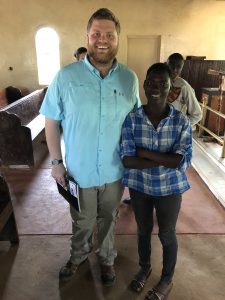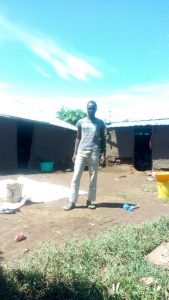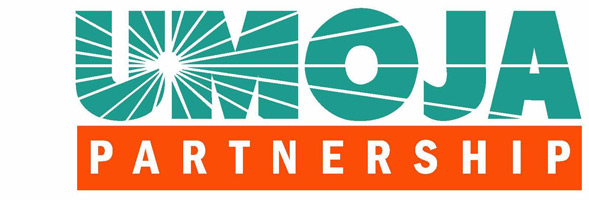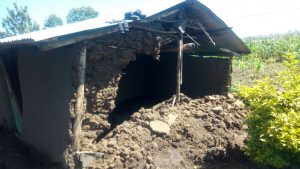 Jambo Marafiki! Hello Friends!
Jambo Marafiki! Hello Friends!
We’ve arrived in Kisumu and are having a great time settling in and going through our orientation with Leonard and Linda, the Project Director and Deputy Project Director of Umoja here in Kenya. We have visited many schools that are supported by the Umoja Project. Umoja partners with 18 local primary schools. At any given school, between 25 and 50 percent of the students are full or partial orphans who receive food, uniforms, blankets, solar lamps, and psychosocial support. During our visits to the schools, we have been privileged also to visit the homes of several students supported by Umoja. One such student, Elvis, is in Standard 1 (the equivalent of first grade) and is already the primary caregiver in his home. He cooks, cleans, fetches firewood and water, washes clothes, and cares for his ill grandmother and three younger siblings. Elvis was abandoned by his parents when he was just three years old. AIDS has orphaned most of the children that Umoja serves, but abandonment is also common. What is most amazing to me is that despite the unthinkable challenges that these students face, the top performing students in three of the four schools we visited this week were students served by Umoja.
I’m moved not only by the good work of the Umoja project, but also by the beauty of the Kenyan people and Kenyan culture. Kenyans are in tune with the rhythms of nature in a way that we Americans simply are not. I think of the first several verses of Ecclesiastes 3:
“For everything there is a season, and a time for every matter under heaven:
A time to be born, and a time to die;
a time to plant, and a time to pluck up what is planted;
a time to kill, and a time to heal;
a time to break down, and a time to build up;
a time to weep, and a time to laugh;
a time to mourn, and a time to dance;
a time to throw away stones, and a time to gather stones together;
a time to embrace, and a time to refrain from embracing;
a time to seek, and a time to lose;
a time to keep, and a time to throw away;
a time to tear, and a time to sew;
a time to keep silence, and a time to speak;
a time to love, and a time to hate;
a time for war, and a time for peace.”
The unhurried pace of Kenyan life frustrates our American sensibilities: our constant need to keep busy, to be prepared, and to begin one task before you’ve finished the last. We have much to learn from the Kenyans in this regard. There is no need to rush anything before its due season, nor is there a need to tarry when the time has passed. The Kenyans look to nature as their teacher and guide. The local tribe, the Luo, tell time not by reading a clock face, but by reading the sun. Because Kisumu is on the equator, they have a predictable 12-hour day with the sun rising at 6:43am and setting at 6:43pm every day, all year. Therefore, they tell time in terms of the “first hour, second hour, third hour” and so forth, referring to the hours of sunlight. The “eighth hour,” for example, corresponds roughly to 2pm. This seems more sensible than our clock, which places the “first hour” in the middle of the night. It is not without confusion, though. Leonard, the Umoja Project Director, shared that sometimes they will set a meeting for 10 o’clock in the morning only to have someone show up at 4:00pm, or the 10th hour.
Even Luo names reflect attention to the sun. Vanetta and I were both given Luo names on arrival. My name, Omondi, signifies that I was born in the pre-dawn morning hours, and her name, Akinyi, tells others that she was born in the morning. Similarly, their greetings are celebrations of the cycles of life. “Good Morning” in Luo is Oyawre, which translates to “the darkness has gone!” “Good Evening,” on the other hand, is Owimore, or “the sun is being covered.” Celebrations of daily miracles—beautiful.
I am moved by the way hospitality seems to be woven into the genes of the Luo people. Even the town name, Kisumu, shares its root with the Luo word meaning “hospitality in a time of famine.” (That such a word exists in their language is remarkable.) The town received its name during a period of extended famine in the surrounding agricultural areas. When these hungry travelers arrived in Kisumu, they found a village of fishermen willing to share their catch. Kisumu County’s residents take great pride in their heritage of hospitality. I’ve noticed this especially in how the Kenyans offer food and drink. In the US, it is customary to ask “Would you like some tea?” or “Would you like for me to cook for you?” The Kenyans, on the other hand, will ask “Would you mind some tea?” or “Would you mind if I cook something for you?” The answer, of course, is always no! We Americans eschew being a burden. The very idea of asking our hosts to go out of their way to serve us—though we may indeed want some tea or be hungry—seems offensive. By offering the right of refusal, the Kenyans move past this awkward dance and make clear their desire to serve their guests. This is gracious hospitality—we have so much to learn. I hope to become a student of this grace.
 Project Assistants are secondary school graduates who have been sponsored by Umoja through primary and secondary school and are now working with the Umoja Project for a year to earn money before matriculating into college. As you may have seen in recent news reports, this area of Kenya has been devastated by heavy rains and flooding. One of the Project Assistants, Bryan, had his home washed away in the floods. We have made it one of our goals to raise funds to rebuild his home. Home construction here runs approximately $700 per structure. If you feel led to contribute, you can send a check to:
Project Assistants are secondary school graduates who have been sponsored by Umoja through primary and secondary school and are now working with the Umoja Project for a year to earn money before matriculating into college. As you may have seen in recent news reports, this area of Kenya has been devastated by heavy rains and flooding. One of the Project Assistants, Bryan, had his home washed away in the floods. We have made it one of our goals to raise funds to rebuild his home. Home construction here runs approximately $700 per structure. If you feel led to contribute, you can send a check to:
Global Interfaith Partnership
3808 North Meridian St.
Indianapolis, IN 46208
Please include “Shelter” in the memo line. Alternatively, you can donate online here: http://theumojapartnership.org/give/ and include “Shelter construction” in the comments.
Thank you all so much for your continued love, prayers, and support. “Umoja” is Swahili for “unity” and it is true that all of the excellent work here in Chulaimbo is only possible thanks to cooperation between US partners, local congregations, schools, and the hard work of Leonard, Linda, and their project officer Jerry. I count it a joy and a privilege to be a part of this work and I invite you to join me.
Grace, peace, and love to all,
Bailey

